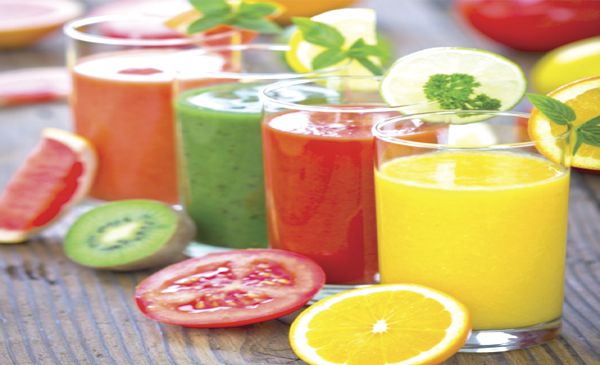
Smoothies: immense health benefits but...
The consumption of smoothies globally and in Ghana has increased in recent years. This may be due to health messages encouraging consumers to take in more vegetables and fruits.
The term “smoothie” has been used since the 70s mainly in North America and United Kingdom. It was, however, in the 2000s that smoothies re-emerged as a part of the trend towards healthy eating habits.
Advertisement
Their preparation is based on the usage of different fruits and/or vegetables which are processed to obtain juice, pulp or puree and then mixed.
In general, smoothies are a blended form of beverage which are a typical semiliquid, smooth consistency, containing fruit(s)/vegetable(s), concentrated juice and other complements such as yogurt, milk, honey, or raw egg, and are prepared with different combinations of fruit and vegetables.
In recent times, flours such as oats flour, rice flour, soy flour are added to smoothies either as a thickener or to increase the caloric contents or both.
Benefits
Among the health benefits of smoothies is the fact that they generally contain high amounts of antioxidants, fibres and vitamins. For example, consumption of two fruit portions of smoothie supplies nearly the recommended dietary intake of vitamin C (100 mg/day) for adults.
Additionally, because they are typically semiliquid in consistency, taking smoothies contribute to hydrating the body.
The consumption of smoothies may help meet the World Health Organisation’s (WHO) five a day fruit and vegetable intake target.
For example, a 250ml (1 cup) portion of fruit smoothie contains the equivalent of two fruit portions. Consuming a 250 ml of carotenoid-rich fruit/vegetable smoothie daily has also been shown to improve the skin.
Fruit/vegetable smoothie may have a better satiating effect and may also be better perceived as food-like than fruit juice.
By preventing large influx of sugar into the bloodstream, high fibre smoothies allow the sugars to be more slowly absorbed. This is beneficial for blood-sugar management, mental focus, and preventing cravings.
However, the saying ‘too much of a good thing...’ applies here. The excess intake of smoothies may contribute to an excessive caloric (energy) intake.
Apart from naturally present sugar in the fruits/vegetables used, there are sugars from the use of fruit juice concentrate and/or high fructose corn syrup as a liquid base in preparing smoothies.
Some also add honey or syrups to sweeten the smoothie.
The excessive consumption of these “free sugars” can contribute to overweight and obesity which have been linked to conditions such as type 2 diabetes, dyslipidaemia, some cancers, hypertension and other cardio vascular diseases.
It is important to bear in mind that per WHO recommendations for healthy eating, an average adult should consume not more than about 25 grams (about five teaspoons) of “free sugars” a day.
So what is the bottom line? If you choose to ‘smoothie’, remember, quantities do matter.
The recommendation is to limit fruit juices and/or smoothies to a total of no more than 150 ml a day.
As much as possible, choose whole or cut fruit and eat at least five portions of a variety of fruits and vegetables every day (see the box on ‘how much is five portions’).
How much is five portions?
The five-a-day rule is a WHO recommendation for every individual to consume at least 400g or five portions of fruits and vegetables daily to help reduce the risk of non-communicable diseases and help ensure adequate daily intake of dietary fibre.

One fruit exchange equals 15 grams carbohydrate and 60 calories.
The weight includes skin, core, seeds and rind. Try to eat at least two to three vegetable choices each day.
One vegetable exchange is ½ a cup of cooked vegetable or vegetable juice and one cup of raw vegetables.
One vegetable exchange equals five grams carbohydrate, two grams protein, 0 grams fat and 25 calories.
A list of common fruits and vegetables in single portions are shown in the table and images below:
The writers are students of the University of Ghana,
School of Biomedical and Allied Health Sciences,
Department of Nutrition and Dietetics, Korle Bu.
Telephone: 0260994565




